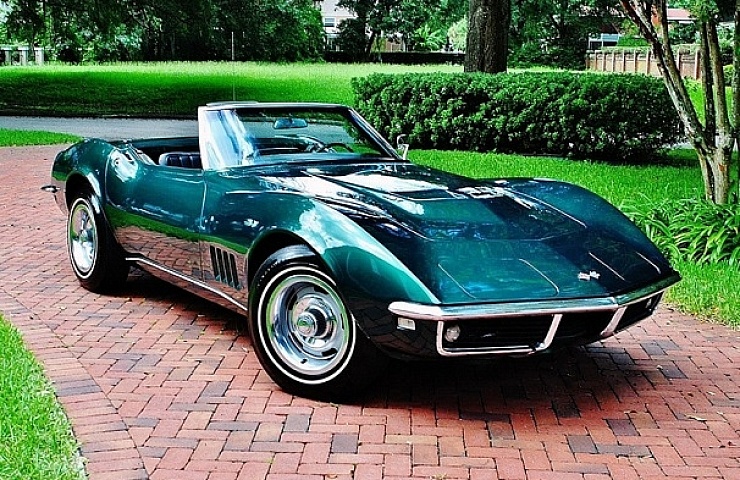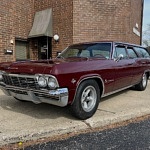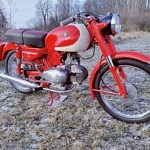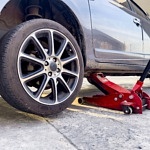The classic-car world is filled with lingo. One of the most widely used specialized terms is “matching numbers,” a way to indicate that a car still carries all its original equipment and is therefore authentic (and often more valuable.) At any one time, there are several hundred cars listed on eBay Motors as having matching numbers. But the term can have different meanings for different people, so it’s helpful to know exactly what is meant when a car is described as a “matching-numbers” model.

The engine block number (8S403752) matches for the 1968 Corvette convertible shown at the top of this post.
It’s a Numbers Game
In the early years of automotive assembly lines, a car was issued a serial number—but the engine, transmission, and other components were added without any reference to that number. By the early 1960s, manufacturers started stamping the engine block and transmission with the serial number (or the last set of digits) designated for the car that would receive those parts. Things got even more efficient and organized when, in 1981, the federal government standardized these codes to a 17-character Vehicle Identification Number (VIN). The VIN allows manufacturers to stamp the car and its significant components pieces with the same number. This step that helps them manage inventory and helps us identify matching numbers.
So for classic-car purists who want to know for sure that a vehicle still contains all its original parts, seeing the same number on the vehicle body, engine block, and transmission is reassuring. In fact, it increases the value of that vehicle, which is why sellers make the claim.
Here’s the problem: While it’s easy to see the number stamped on the car’s manufacturing plate, the numbers on other components are often buried in the guts of the car. So unless you roll up your sleeves and dig in, you may not know if a “matching-numbers” car actually has matching numbers.
The Details Matter with Matching Numbers Cars
Matching numbers are not limited to the VIN. Components can be stamped with casting numbers, model numbers, special codes, and dates. Any indication of dates can be especially useful. For example, a car rolling off an assembly line in January logically could not have a glass window with a date code from the following March. If it does, then something is fishy. That glass would have been produced (and accordingly stamped) prior to the vehicle’s date code.
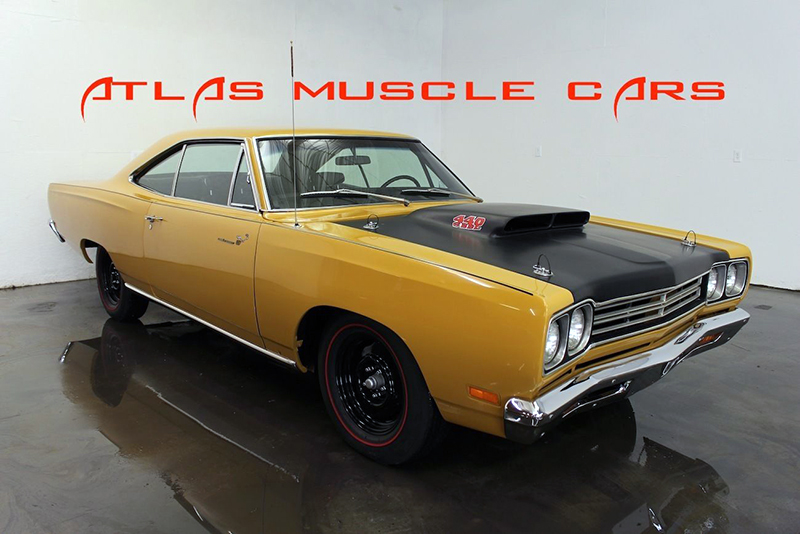
Documentation of components for this 1969 Plymouth Road Runner is extensive, all mapping to the VIN (shown right below).
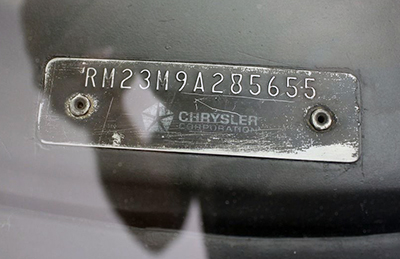
VIN# for a matching-numbers 1969 Plymouth Road Runner
Therefore, it’s helpful when a seller breaks down the numbers, codes, and dates to establish what is matching. Here’s an example from a 1969 Plymouth Road Runner recently sold on eBay. This is only part of the list provided by the seller:
VIN# RM23M9A285655
R = Plymouth
M = Medium
23 = Two-door hardtop
M = 440 sixpack / SixBBL Engine
9 = 1969
A = Lynch Road, Michigan
285655 = Sequence Number
96 = Bahama Yellow
26 = 26-inch radiator
A12 = 440 3-2 BBL engine-conversion package
926 = Engine code-auto
999 = Special rear axle (4.10 Dana 60)
93 = Transmission code, hemi automatic
Beware that some owners take creative license by using the term “matching numbers.” A vehicle is not numbers matching when only some but not all of the parts—and not even the engine—match the car’s serial number. In rare cases, some builders have been known to re-stamp an engine block with a matching number. This is a deceptive practice intended to increase the value of the vehicle.

